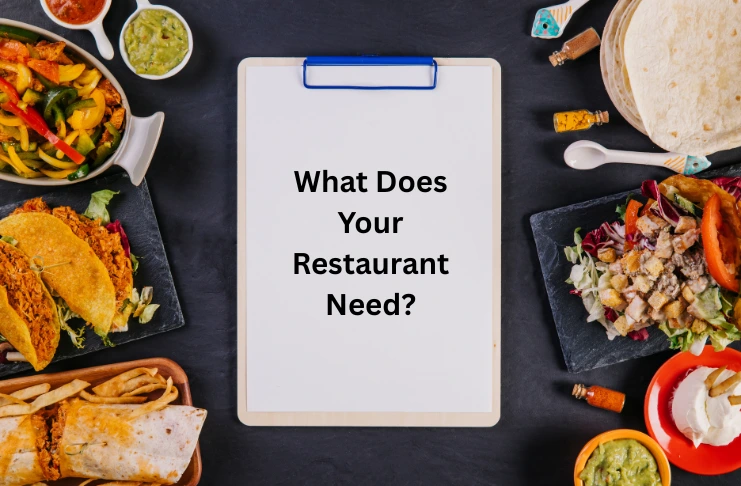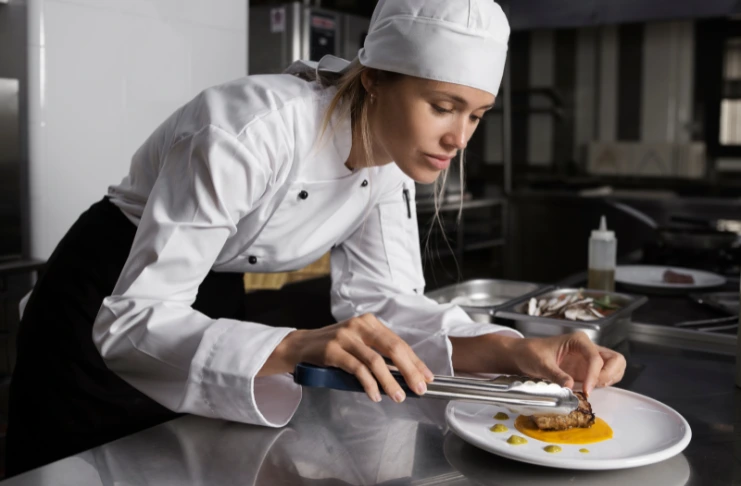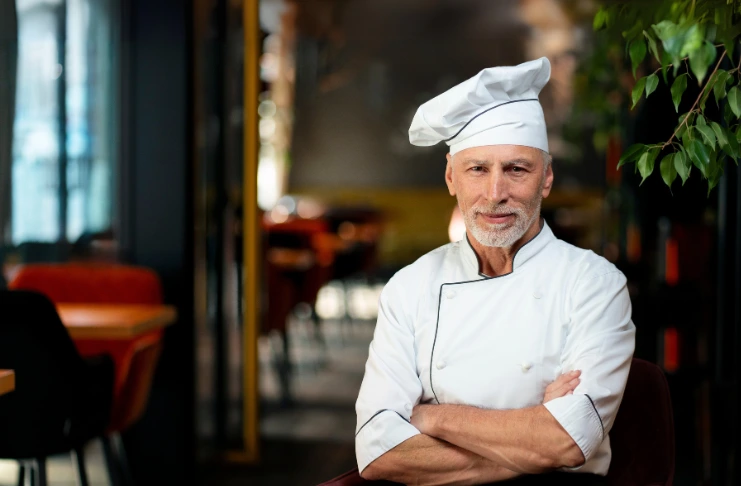Hiring the right chef is pivotal to your restaurant’s success. A skilled chef not only crafts delectable dishes but also leads the kitchen team, influences the dining experience, and upholds your establishment’s reputation. Beyond their culinary expertise, they become the heartbeat of your restaurant’s identity and a cornerstone of its operational excellence.
In today’s competitive dining landscape, a chef is more than just a cook—they’re a visionary, a manager, a mentor, and often the face of your brand. Their philosophy shapes your menu, their standards determine your quality, and their leadership cultivates your kitchen culture. Whether you’re opening a new establishment or replacing a departing chef, this hiring decision represents one of the most significant investments in your restaurant’s future.
The perfect chef brings a unique blend of artistic creativity and practical business sense. They understand not only how to create memorable dishes but also how to control food costs, minimize waste, and maximize efficiency—all while maintaining consistency during the busiest service hours. Their ability to balance culinary innovation with operational discipline can make the difference between a restaurant that merely survives and one that truly thrives.
This comprehensive guide will walk you through the chef-hiring process of finding, evaluating, and onboarding the ideal culinary professional for your restaurant. From defining your specific needs and crafting compelling job descriptions to conducting effective interviews and making the final selection, we’ll provide actionable insights to help you navigate this crucial hiring journey with confidence and clarity.
Understanding the Importance of a Great Chef

In the bustling restaurant industry, the chef plays a central role—not just in the kitchen but in shaping the overall dining experience. From menu planning and ingredient sourcing to team management and quality control, qualified chefs wear many hats that directly impact your restaurant’s reputation and profitability.
According to the U.S. Bureau of Labor Statistics, employment for chefs and head cooks is projected to grow 8% from 2023 to 2033, faster than the average for all occupations. This growth reflects the increasing demand for culinary professionals.
A competent chef ensures more than just great-tasting food. They’re responsible for:
- Maintaining kitchen efficiency: A skilled chef optimizes workflows, manages inventory, and minimizes waste, helping control costs and reduce downtime.
- Upholding food quality and consistency: Through their technical and creative skills, chefs ensure that every plate served meets the restaurant’s standards.
- Leading and mentoring staff: A great chef leads by example, fosters a positive work culture, and trains kitchen staff to uphold culinary excellence.
- Driving customer satisfaction and repeat business: Culinary quality directly influences guest experience—an exceptional chef often turns first-time visitors into loyal patrons.
Simply put, hiring the right chef isn’t just about filling a position—it’s about investing in the heart and soul of your restaurant.
Defining Your Restaurant’s Needs

Before initiating the job listing and hiring process, it’s essential to:
- Identify Your Cuisine and Style: Determine the specific culinary expertise required, whether it’s Italian, Japanese, fusion, or another cuisine.
- Establish Experience Requirements: Decide on the level of experience needed, such as years in the industry or familiarity with certain cooking techniques.
- Outline Leadership Expectations: Clarify the chef’s role in managing kitchen staff, inventory, and menu development.
Clearly defining your restaurant’s culinary and leadership needs sets the foundation for hiring a chef who aligns with your vision and drives your kitchen’s success.
Crafting an Effective Job Description

A compelling and detailed job description with job details is your first step toward attracting top-tier culinary talent. It not only communicates the expectations of the role but also sets the tone for the kind of chef you want in your kitchen. Here’s how to do it right:
1. Job Title and Summary
Clearly define the role with a straightforward title like Executive Chef, Sous Chef, or Pastry Chef, depending on your specific needs. Follow it with a concise summary that gives candidates a snapshot of the position’s purpose and its importance within the restaurant.
Example: “We’re seeking an experienced Executive Chef to lead our kitchen operations, craft seasonal menus, and inspire a high-performing culinary team in our upscale Mediterranean bistro.”
2. Key Responsibilities
Outline the chef’s core duties to provide clarity on daily expectations. This may include:
- Planning and updating menus based on seasonal availability and customer preferences.
- Overseeing food preparation and presentation standards.
- Managing kitchen staff schedules, training, and performance.
- Ensuring compliance with food safety regulations and sanitation standards.
- Controlling food cost and waste through smart inventory and portioning.
Be specific here—it helps candidates understand what the role entails and whether they’re a good fit.
3. Required Qualifications
List the non-negotiables you expect from applicants. This may include:
- Culinary degree or relevant certification from a recognized institution.
- Minimum number of years in a similar leadership role.
- Expertise in your restaurant’s cuisine type (e.g., French fine dining, Asian fusion).
- Familiarity with kitchen software, budgeting, and supply chain processes.
These criteria help filter candidates who meet your minimum standards of expertise and experience.
4. Working Conditions
Provide transparency about the work environment so candidates can make informed decisions. Cover aspects like:
- Average weekly working hours and shifts (e.g., nights, weekends, holidays).
- Physical demands such as long periods of standing, lifting heavy pots or equipment, and working in high-temperature environments.
- Whether the position is full-time, part-time, or seasonal.
This helps set clear expectations and reduces the risk of misunderstandings after hiring.
A thoughtful, accurate job description doesn’t just inform—it sells the opportunity. By being specific and transparent, you attract candidates who are both qualified and genuinely aligned with your restaurant’s culture and goals.
Sourcing Qualified Candidates

To find the right chef:
- Utilize Online Job Portals: Post openings on sites like Indeed, Glassdoor, and specialized platforms such as MeetAChef.
- Leverage Professional Networks: Engage with culinary schools, attend industry events, and connect with local chef associations.
- Consider Recruitment Agencies: Agencies specializing in hospitality can provide vetted candidates.
- Promote Internally: Identify and train existing staff members who show potential for leadership roles.
Casting a wide yet strategic net across multiple channels, including a staffing agency, increases your chances of finding a chef who’s not only qualified but also aligned with your restaurant’s vision and values.
Evaluating Candidates Effectively

During the selection process, focus on evaluating cooking skills :
- Review Resumes Thoroughly: Look for relevant experience, stability, and progression in previous roles.
- Conduct Structured Interviews: Prepare questions that assess technical skills, problem-solving abilities, and cultural fit.
- Administer Practical Tests: Have candidates prepare signature dishes to evaluate their culinary skills and creativity.
- Check References: Contact previous employers to verify work history and performance.
Thorough evaluation at every step ensures you don’t just hire a skilled chef—but a reliable team leader who elevates your kitchen’s performance and culture.
Onboarding Your New Chef

A smooth onboarding process includes:
- Orientation: Introduce the chef to your restaurant’s culture, policies, and team.
- Training: Provide necessary training on kitchen equipment, recipes, and safety protocols.
- Feedback Mechanisms: Establish regular check-ins to address concerns and provide support.
A structured onboarding process sets your new chef up for success and ensures a smooth transition into your kitchen’s operations.
Average Salary of a Restaurant Chef in the USA

Knowing the typical salary range for chefs helps ensure your compensation offers are competitive and in line with industry standards.
INDUSTRY INSIGHT
| The average annual salary for chefs and head cooks in the United States is $62,640, according to the U.S. Bureau of Labor Statistics. Salaries can vary based on experience, location, and the type of establishment. Executive chefs at fine dining restaurants or those in larger cities tend to earn higher salaries, while entry-level cooks at smaller establishments may earn less. Competitive pay, along with benefits and growth opportunities, can help attract and retain top culinary talent. |
Here’s a general breakdown:
- Entry-Level Chefs: $36,000 – $48,000 per year
- Experienced Chefs: $60,000 – $80,000 per year
- Executive Chefs in High-End Establishments: $90,000 – $120,000+ per year
- Private or Personal Chefs: $300 to $800 per day (depending on services)
Location also plays a significant role. For example:
- New York and California often offer higher salaries due to demand and cost of living.
- Smaller cities or rural areas may pay less but often offer lower operational and living costs.
Offering a competitive salary aligned with industry standards helps attract and retain a talented chef who can contribute to your restaurant’s long-term success.
Retaining Top Culinary Talent

To maintain a strong kitchen team:
- Offer Competitive Compensation: Ensure salaries and benefits align with industry standards.
- Foster a Positive Work Environment: Promote teamwork, recognition, and open communication.
- Provide Growth Opportunities: Encourage continuous learning and career advancement.
Investing in your chef’s growth and well-being fosters loyalty and strengthens the long-term success of your restaurant.
Conclusion
Hiring the right chef is a strategic investment in your restaurant’s future. By clearly defining your needs, sourcing effectively, evaluating candidates thoroughly, and fostering a supportive environment, you can build a culinary team that drives success. The chef you select will become the cornerstone upon which your restaurant’s reputation and identity are built—just as we discussed in the introduction.
Remember that your chef embodies the delicate balance between artistic expression and business acumen that modern restaurants require. The visionary who leads your kitchen doesn’t just create memorable dishes; they shape your establishment’s culture, mentor your staff, manage costs, and ultimately deliver the dining experience that keeps customers returning. The rigorous selection process outlined in this guide acknowledges the multifaceted role that chefs play in today’s competitive dining landscape.
The time and resources you invest in finding the perfect culinary leader will pay dividends through consistent quality, innovative menus, efficient operations, and a positive kitchen environment. Just as we emphasized at the outset, a chef influences every aspect of your restaurant—from plate presentation to team morale, from food costs to customer satisfaction.
As you move forward with your hiring process, maintain focus on finding not just technical skill, but the right blend of leadership, creativity, business sense, and cultural fit. The chef who aligns with your restaurant’s vision while bringing their unique perspective will help transform your establishment from merely functional to truly exceptional.
The journey to finding your ideal chef may be challenging, but the impact of making the right choice resonates throughout your entire operation—reinforcing why this hiring decision stands as one of the most pivotal you’ll make as a restaurant owner or manager. Your investment in this process with culinary agents today lays the foundation for your restaurant’s success tomorrow.
Frequently Asked Questions
1. What is the best way to hire a chef?
The best way to hire a chef is by clearly defining your needs, writing a detailed job description, and sourcing candidates through trusted culinary networks or job platforms.
2. How can I recruit a chef?
You can recruit a chef by posting on job portals, reaching out to culinary schools, leveraging social media, or working with hospitality recruiters.
3. How much is a personal chef in NC?
In North Carolina, hiring a personal chef typically costs between $300 and $600 per day, depending on the service and experience level.
4. Is it worth it to hire a personal chef?
Yes, hiring a personal chef is worth it if you value customized meals, convenience, and dietary support tailored to your lifestyle.
5. How do I hire a cook in my restaurant?
To hire a cook, define the role clearly, advertise through reliable job platforms, and evaluate candidates through interviews and trial shifts.
6. How much is it to buy a chef?
You can’t “buy” a chef, but hiring one can cost between $45,000 and $100,000 annually, depending on their experience and your restaurant’s scale.
7. How to hire a chef for a restaurant?
To hire a chef for a restaurant, outline your kitchen’s needs, post a targeted job ad, screen applicants carefully, and conduct hands-on cooking tests.
8. How much is a personal chef in LA?
In Los Angeles, personal chefs typically charge between $400 and $800 per day or more, depending on the complexity and customization of meals.
9. How to find someone to cook for you?
You can find someone to cook for you through personal chef directories, catering services, local classifieds, or apps like Thumbtack and Take a Chef.





